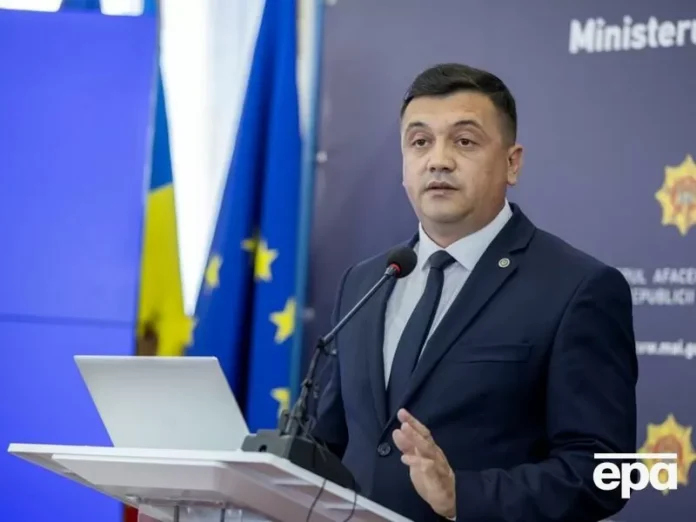Minister of Internal Affairs of Moldova Adrian Efros believes that Russia has not abandoned its intentions to seize Moldova, although there are currently no signs of military threat to the country. He made this statement on March 24 in the Ziarul de Gardă podcast, and the translation was published by the NewsMaker publication.
In the podcast, Efros expressed his concerns about Russia’s actions towards Moldova, stating that the country has not given up on its plans to annex Moldova. He pointed out that even though there are no immediate signs of military aggression, the threat still remains. Efros also mentioned that Russia’s actions in Ukraine and Georgia serve as a warning for Moldova.
The Minister’s statement comes at a time when tensions between Russia and Moldova have been on the rise. In recent years, Russia has been accused of interfering in Moldova’s internal affairs, including supporting separatist movements in the breakaway region of Transnistria. This has led to a strained relationship between the two countries, with Moldova seeking closer ties with the European Union.
Efros’ concerns are not unfounded, as Russia has a history of annexing territories and interfering in the affairs of its neighboring countries. The annexation of Crimea in 2014 and the ongoing conflict in eastern Ukraine are prime examples of this. Therefore, it is understandable that Moldova, a small country with a vulnerable economy, would be worried about Russia’s intentions.
However, it is important to note that there are currently no signs of an imminent military threat to Moldova. The country has been able to maintain its independence and sovereignty, and there have been no reports of any Russian military buildup near its borders. In fact, Russia has been one of the main donors of humanitarian aid to Moldova during the COVID-19 pandemic.
Despite this, Efros’ statement serves as a reminder that Moldova must remain vigilant and continue to strengthen its defense capabilities. The country has been taking steps to modernize its armed forces and improve its border security. It has also been working closely with its European partners to enhance its defense capabilities.
In addition, Moldova has been actively seeking to resolve the Transnistrian conflict through peaceful means. The country has been engaged in negotiations with Russia and Ukraine, as well as with the breakaway region itself, to find a solution that is acceptable to all parties involved. This shows that Moldova is committed to maintaining stability and peace in the region.
It is also worth noting that Russia and Moldova have a long history of cultural and economic ties. Moldova is heavily dependent on Russia for its energy supplies, and many Moldovans have relatives living in Russia. Therefore, it is in the best interest of both countries to maintain a positive and mutually beneficial relationship.
In conclusion, Minister Efros’ statement serves as a reminder that Moldova must remain vigilant in the face of potential threats from Russia. However, it is also important to note that there are currently no signs of an imminent military threat, and Moldova has been actively working towards resolving conflicts through peaceful means. The country’s efforts to strengthen its defense capabilities and maintain good relations with its neighbors are commendable and should be supported by the international community.

